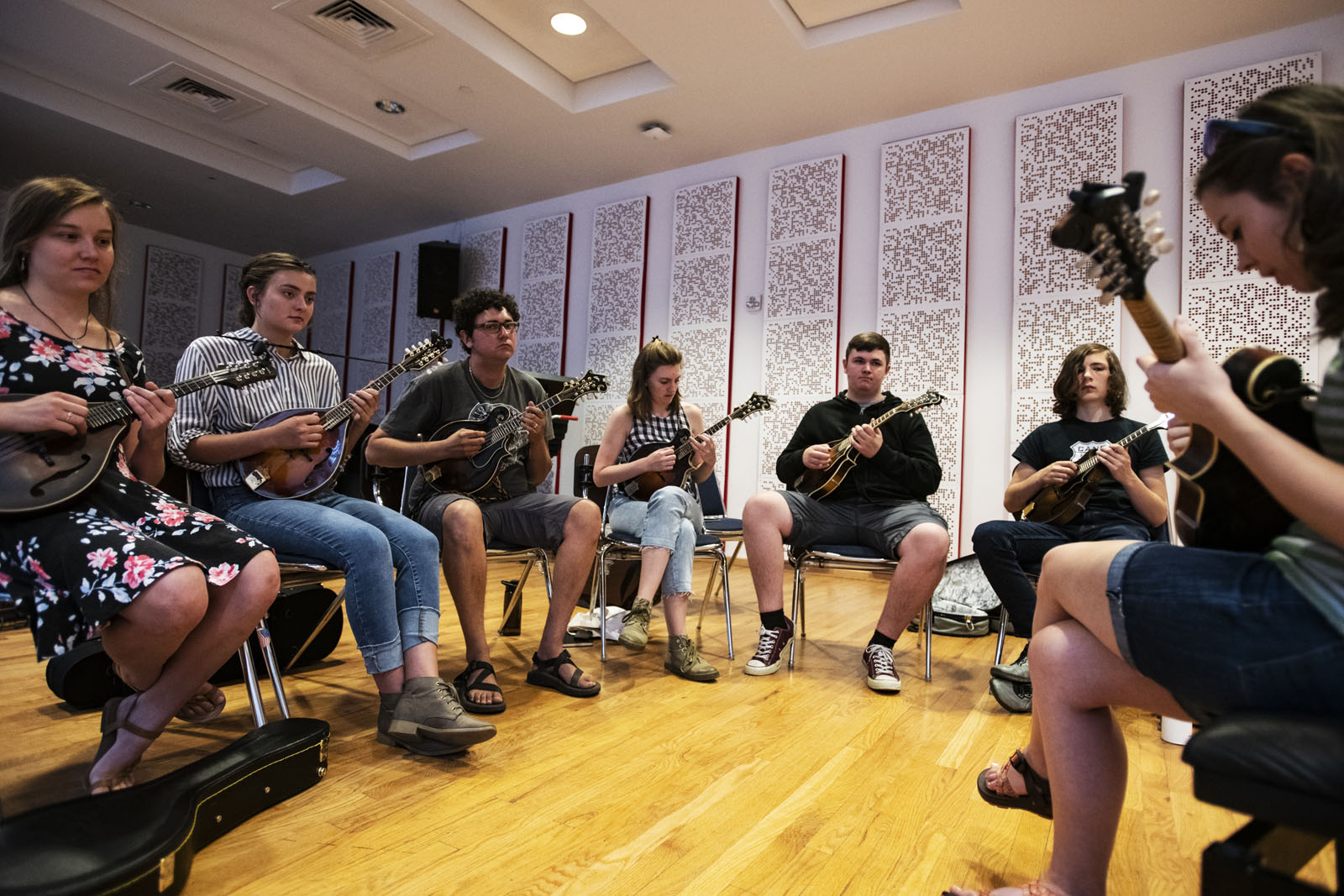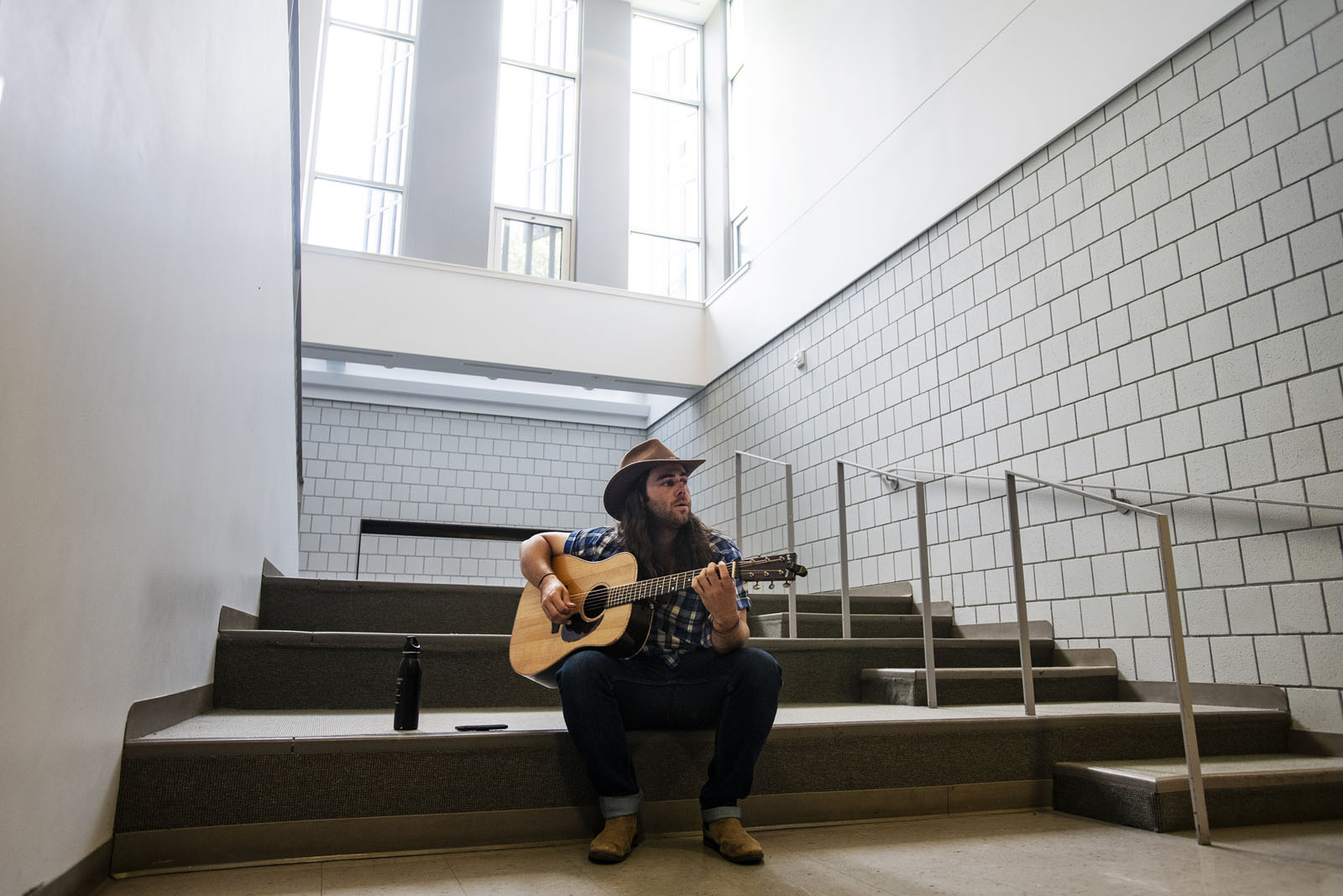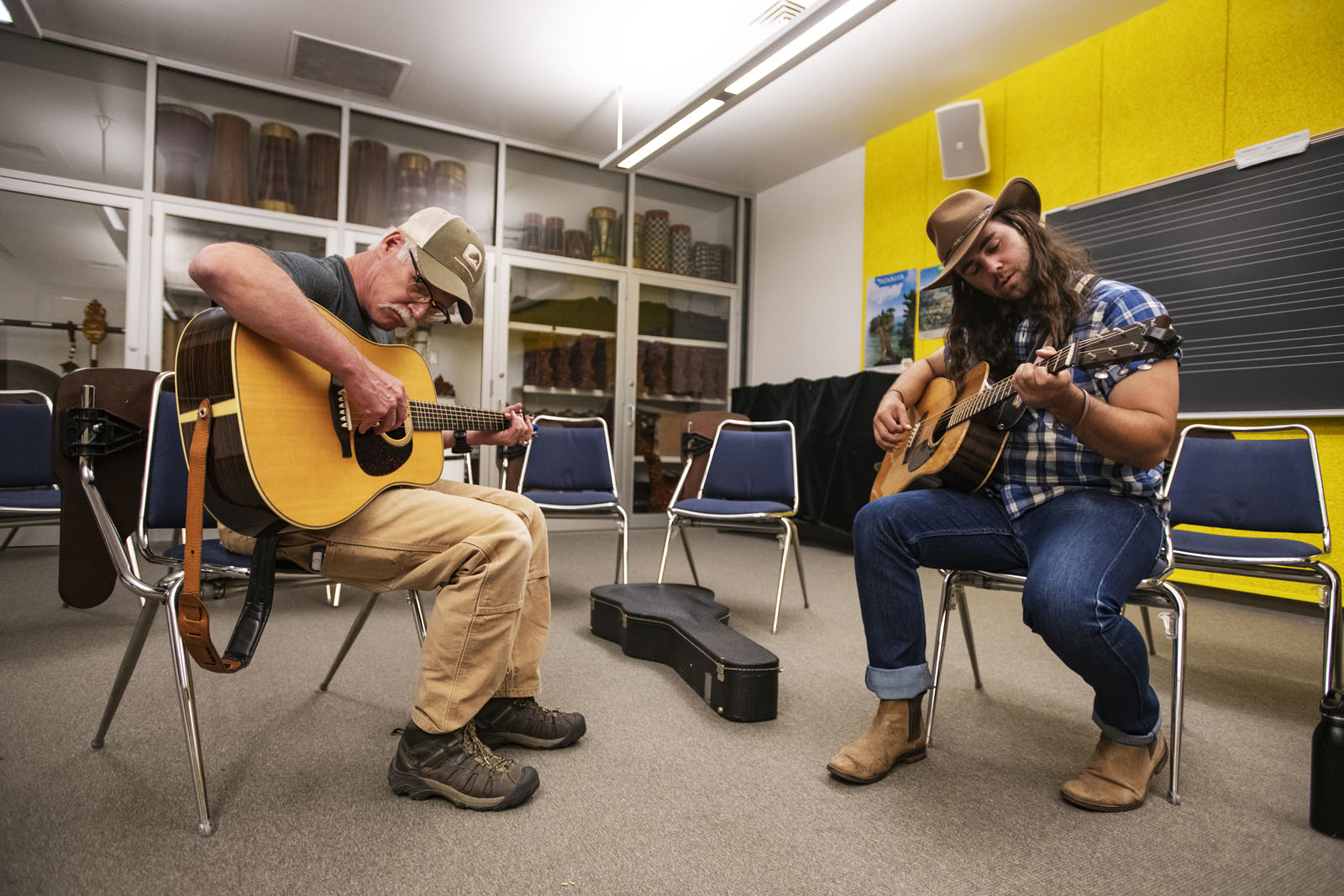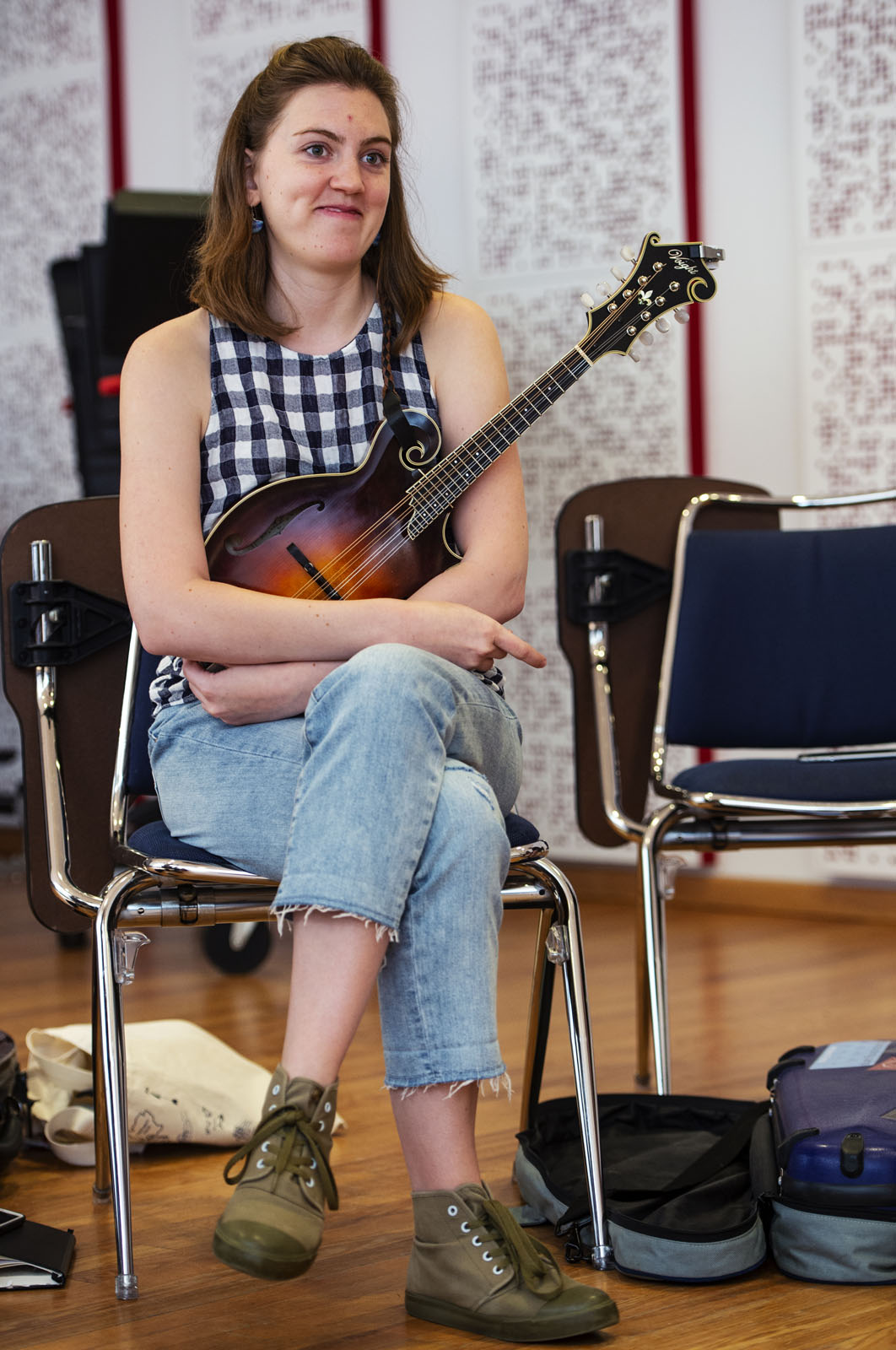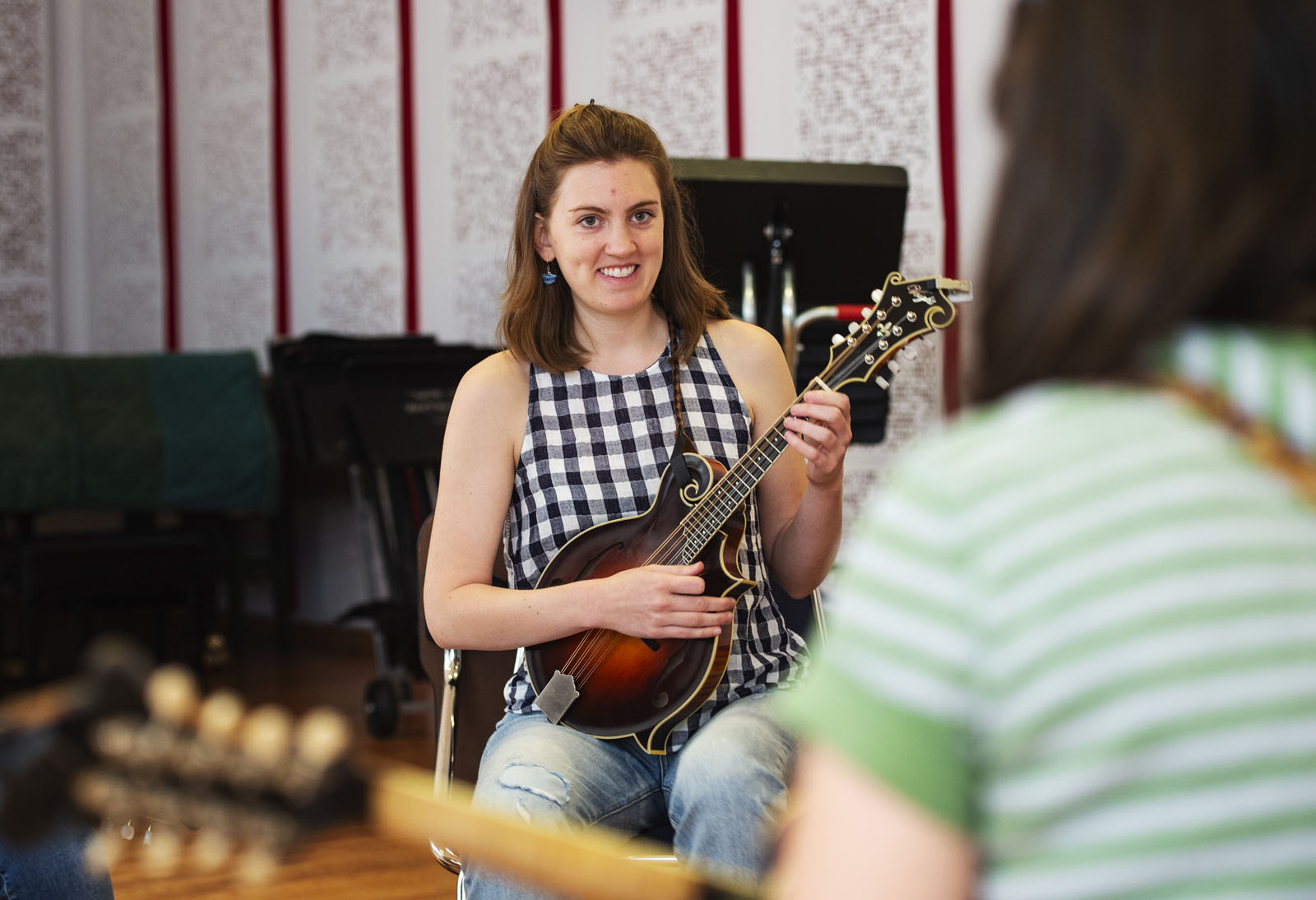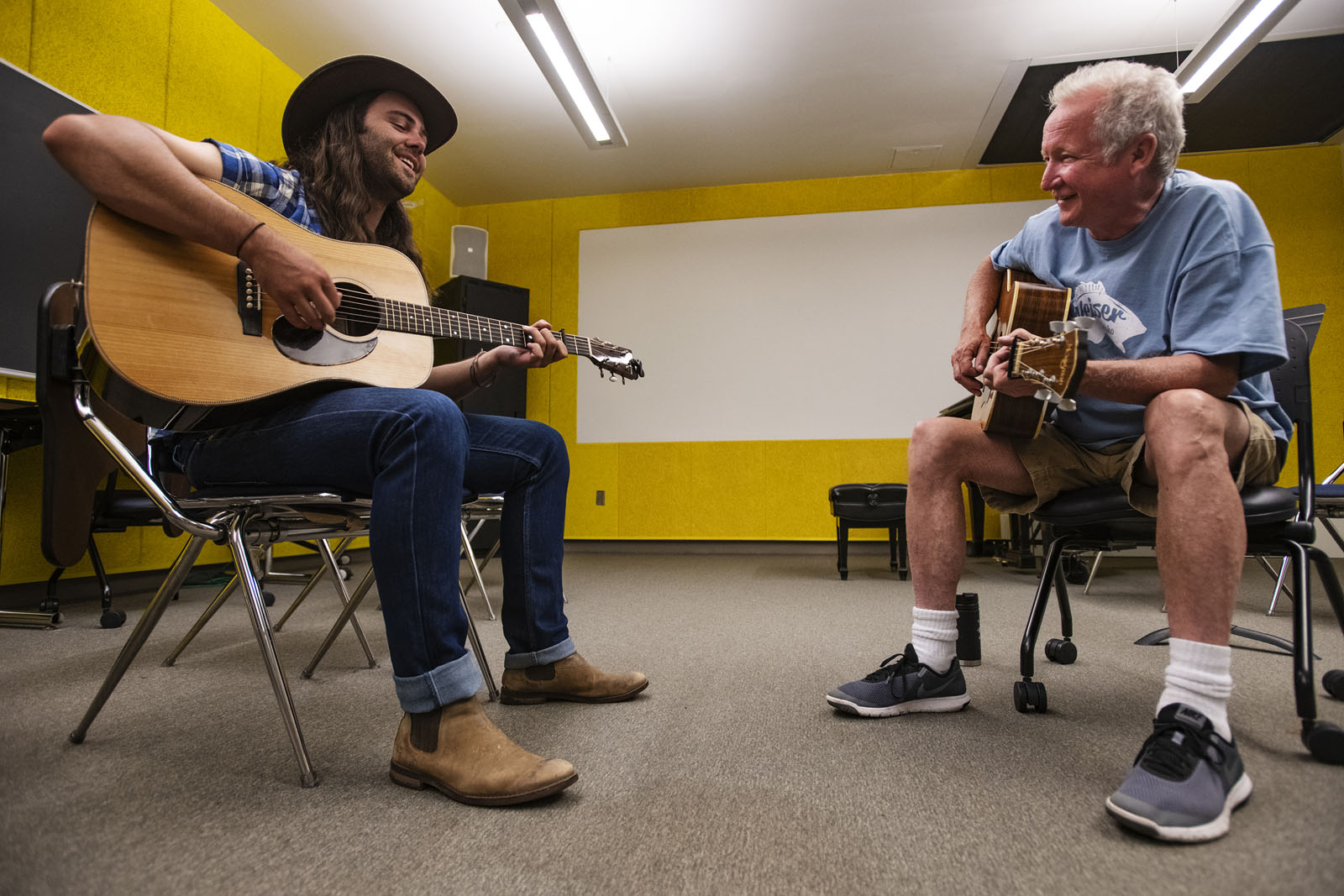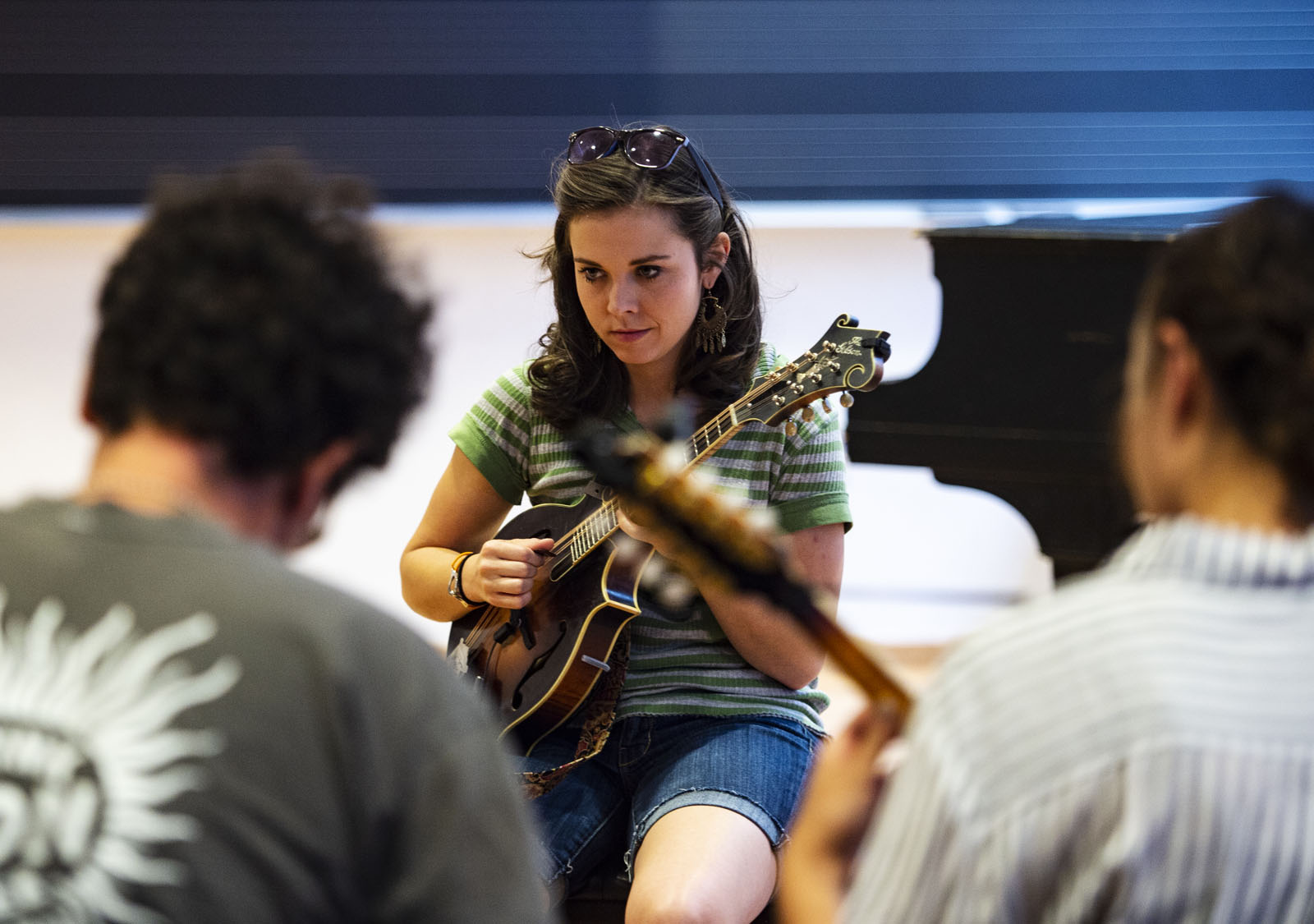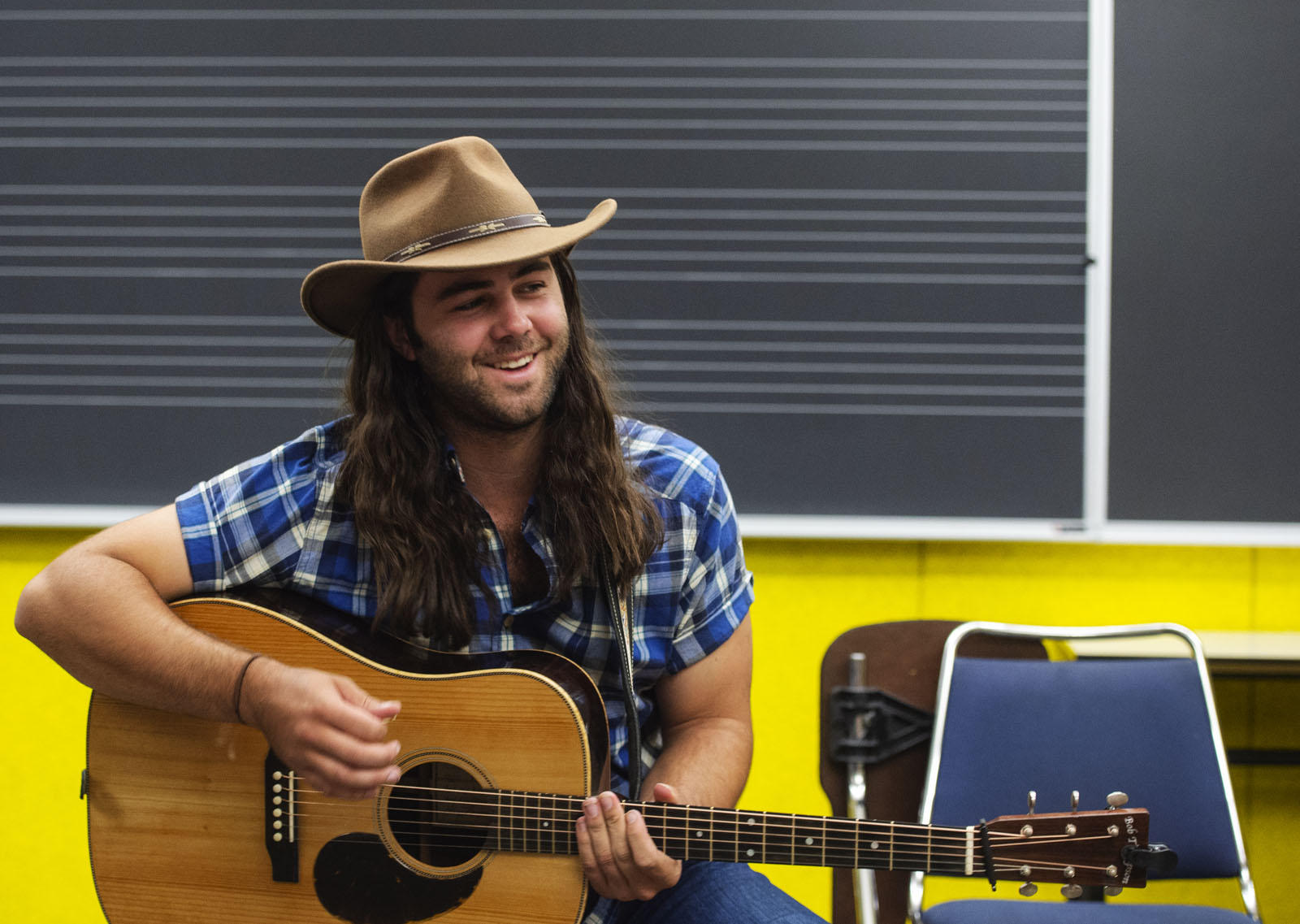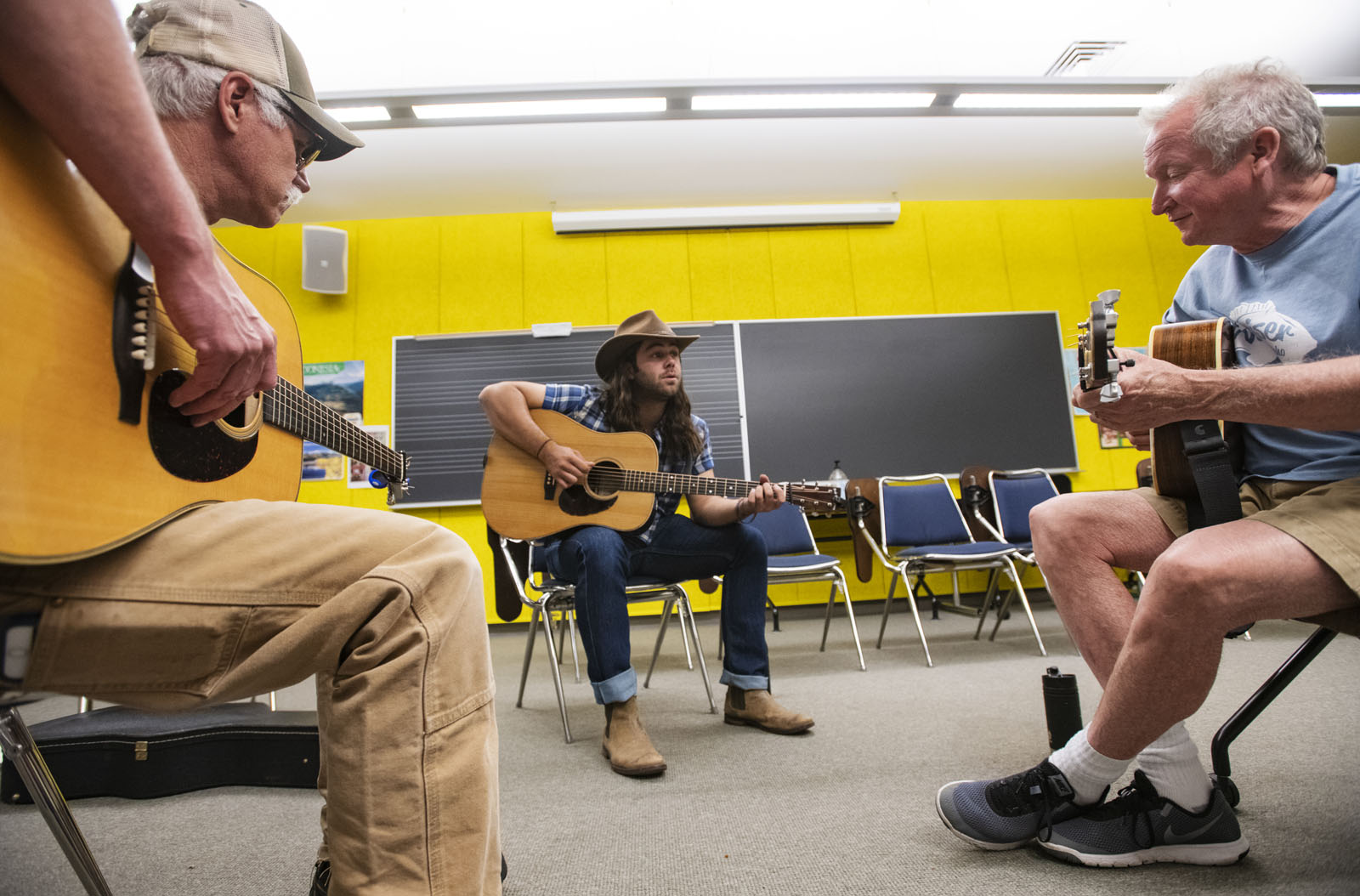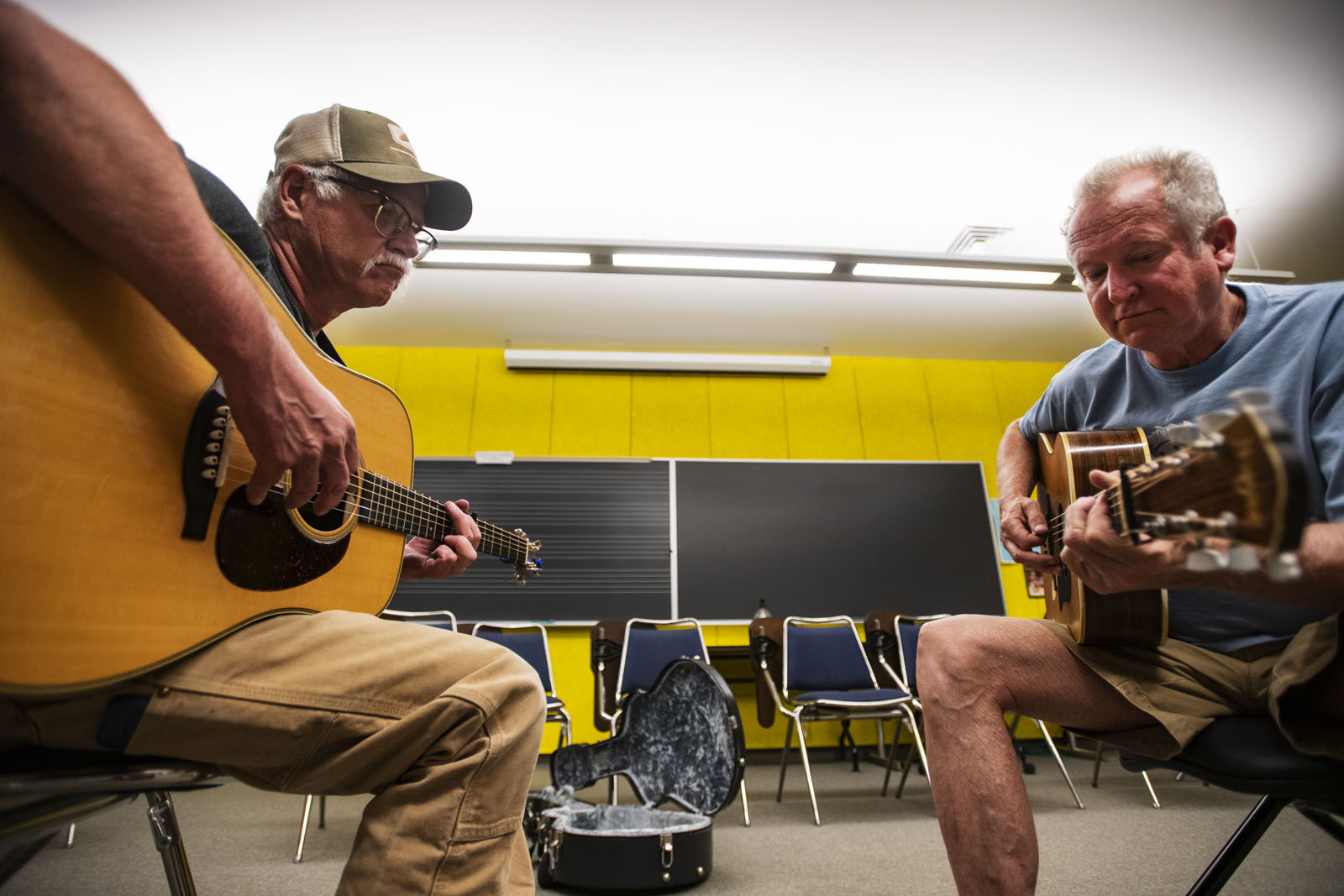Photos by Kelsey Brunner
Six students, ages 15 and up, sit in a semi-circle around Sierra Hull, closely watching her fretting hand, trying to absorb her right-hand rhythm and finesse, her double-stop slides and grace notes. She plays a few phrases of the song "Tax Land" and they echo back, six mandolins together.
Hull, 26, a Grammy nominee who was named Mandolin Player of the Year in 2016 and 2017 by the International Bluegrass Music Association, has each student's rapt attention as they mirror her and memorize the tune.
This is CC's first Bluegrass Workshop, a three-day, intensive camp with intentionally small classes that drew nine students who came from New York, North Carolina, Utah, Arizona, and Colorado. These serious players immersed themselves, CC-style, in bluegrass, working with Hull and Nashville guitarist/singer/producer Jeff White. In Packard Hall they dove into one-on-one classes with the instructors, absorbed group sessions like Hull's, worked out tunes together for a final concert, ate together in Rastall Café, and jammed outside on McHugh Plaza until sometimes 2 a.m.
Mandolinist Nicole Pey '15, one of two CC Bluegrass Ensemble alumni to attend the workshop, says the smallness of the workshop and chance to work with bluegrass luminaries was exciting.
"This has been amazing: the intimacy of this, and the opportunity for one-on-ones," says Pey, who now works in public finance in New York City. "Sierra can work with all of us and sees where each of us is; no one will fall behind. And her personality - she's great at explaining what she's doing. She's a legend, and she's only a year older than me."
Guitarist Garrett Blackwell '17 of Littleton, Colorado, says CC has an excellent reputation for its bluegrass programs, yet he was surprised at the level of talent among fellow workshop students.
"There is a 15-year-old and a 17-year-old here, and they are the best musicians here," Blackwell says.
"I came in thinking, 'I'm going to be pretty good in this thing.' It can be disheartening when you play a break and then the 15-year-old who follows you blows you out of the water," he says, laughing. "But it's cool to see these kids who are going to be pros. They're going to be in bands at big festivals."
Keith Reed, who teaches bluegrass guitar, banjo, and bluegrass ensemble in the CC Music Department, hopes to expand the number of instruments taught in future summer workshops, but keep the classes limited to five or six students so the educational experience is unparalleled.
"At other camps you might have 30 students, and each one might get one question in over the whole course of the camp," Reed says. "I wanted to draw the best musicians who want a real sense of where they're at, and what they need to work on. It creates a small community; they will be seeing each other at festivals from now on."
White, a flatpicker who has performed on stage and on record with Alison Krauss, Vince Gill, The Chieftains, Lyle Lovett, and Tim O'Brien, says he no longer teaches regularly, because he's been disappointed at the level of dedication and practice among typical students. Not so at the CC workshop.
"These students are really interested in getting better. They are ready to soak up some new ideas," he says.
Many of the workshop students have written their own songs, and White was able to help them with songwriting and arranging.
Blackwell worked with White on an arrangement of the Hank Williams song, "Weary Blues from Waiting."
Hull says attention to detail and growth can occur in such a small learning setting.
"There's something kind of beautiful working with a small group of people. In these one-on-one sessions it's easier to dig in deep," she says. "I might say, 'Hey, I was noticing when you were playing in the jam last night that maybe you could do this one thing,' or 'You might like this song.' "
The students' drive also rubs off on one another, she says. "It's inspiring. It's good to be around people who also have been working hard on their instrument; it's not a competition, but you think, 'If they're doing it, I guess I can, too.' "
Bluegrass has been a growth story at CC. Reed began teaching at CC in 2004, with four banjo students. The following year that expanded to 15 students. Now he often teaches 30 to 35 students in private lessons, a bluegrass class, and the bluegrass ensembles - three student bluegrass groups who hone their skills on traditional music and perform on and off campus. The opportunities help students grow.
"Being a leader in the ensemble, and for me the community that gathers around this music, that was critical for my CC experience," says Pey. "It's so great to see it grow, and now with a summer workshop, too."
Blackwell played guitar and sang in a bluegrass ensemble his last year at CC.
"My biggest regret about college is that I only did the ensemble last year; I only started playing bluegrass a year ago. I got sucked right in," he says. "Our band really came together, and by the end we all had this bond, this friendship we didn't have with others. And it made me a lot better. You could see our improvement."
Now he's pursuing music in the Denver area, and is working on an album of original folk and blues-influenced songs. He plays in bluegrass jams most nights, "and everyone's welcoming. You don't get that with other music genres."
"Bluegrass is inherently inclusive, it's our original folk music," Blackwell says. "The songs are so simple, the chords are so simple, so everyone can play. That's what pulled me in on it. There are not a lot of genres where 12 people can play along, even if they don't know the song."
That's exactly what Reed hopes students find.
"I'm selling community here," he says. "How to play, sing, and work with others."




